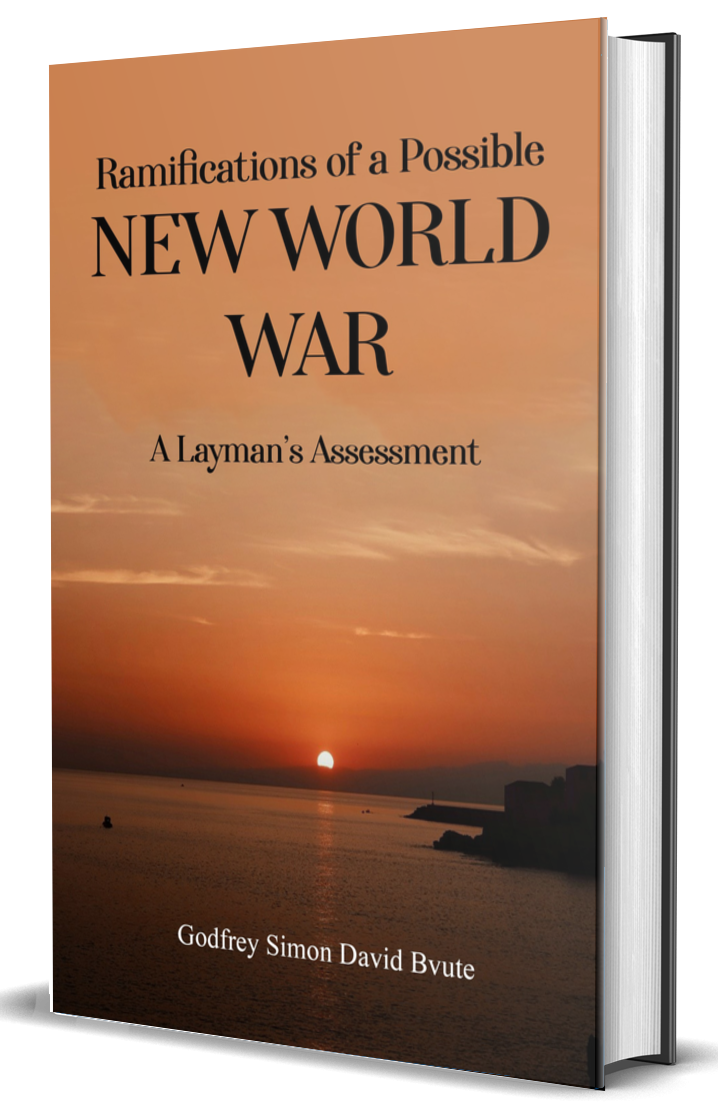Behind every war is an economic engine—one that fuels conflict, determines winners, and leaves ordinary people to bear the cost. In Ramifications of a Possible New World War, Godfrey Simon David Bvute shines a spotlight on the often-overlooked financial forces driving modern geopolitical tensions.

From sanctions and asset seizures to arms sales and proxy warfare, economics is not just a backdrop—it’s a battleground.
Sanctions: Economic War in Disguise?
Bvute delves into how economic sanctions, often framed as tools for peace or punishment, can be just as devastating as military strikes. Russia, for instance, has faced over 16,000 sets of sanctions—the most comprehensive in modern history. Yet instead of collapsing, the Russian economy pivoted, redirecting trade toward Asia and the Global South.
Rather than deterring aggression, sanctions have hardened positions and deepened global divides. Bvute points out the long-term dangers of weaponizing the financial system: once trust is eroded in global trade norms or central bank protections, countries will begin building alternative systems—potentially outside Western influence.
Weapons as Currency
One of the book’s most urgent messages is that arms sales have become an international currency of influence. Billions in military aid have been funneled into the Ukraine conflict, often outpacing humanitarian or economic assistance.
Nations no longer simply align diplomatically—they align militarily. Proxy wars, like the one unfolding in Ukraine, are arenas where powerful nations test and deploy weaponry, often at the expense of the host country’s people and future. These conflicts enrich weapons manufacturers and strengthen geopolitical leverage—but they destroy lives and infrastructure.
As Bvute warns, Ukraine’s battlefield is fast becoming a testing ground for global power games, not a platform for peace.
The Global South: Collateral Damage
Sanctions and war-related inflation have profound effects on countries far from the conflict. Rising fuel prices, disrupted grain exports, and global economic instability hit the Global South hardest—despite having no part in the decisions driving the conflict.
Bvute highlights the injustice of a world where economically weaker nations pay the price for ideological rivalries among global superpowers. These nations are often caught in the crossfire of economic wars they didn’t start and can’t control.
Reclaiming Economic Justice
Ultimately, Bvute’s book calls for a reassessment of how economics is used in global politics. He urges a shift from punitive, profit-driven policies to cooperative strategies focused on shared prosperity. If peace is the goal, then dialogue, development, and mutual respect must become the preferred tools—not financial strangulation or arms escalation.
The Bottom Line
Modern warfare isn’t just fought with bullets—it’s fought with banks, budgets, and business deals. Ramifications of a Possible New World War invites readers to look beyond the frontlines and examine the financial scaffolding holding up today’s conflicts.
War pays—but who profits, and who pays the ultimate price? Read the book and find out.